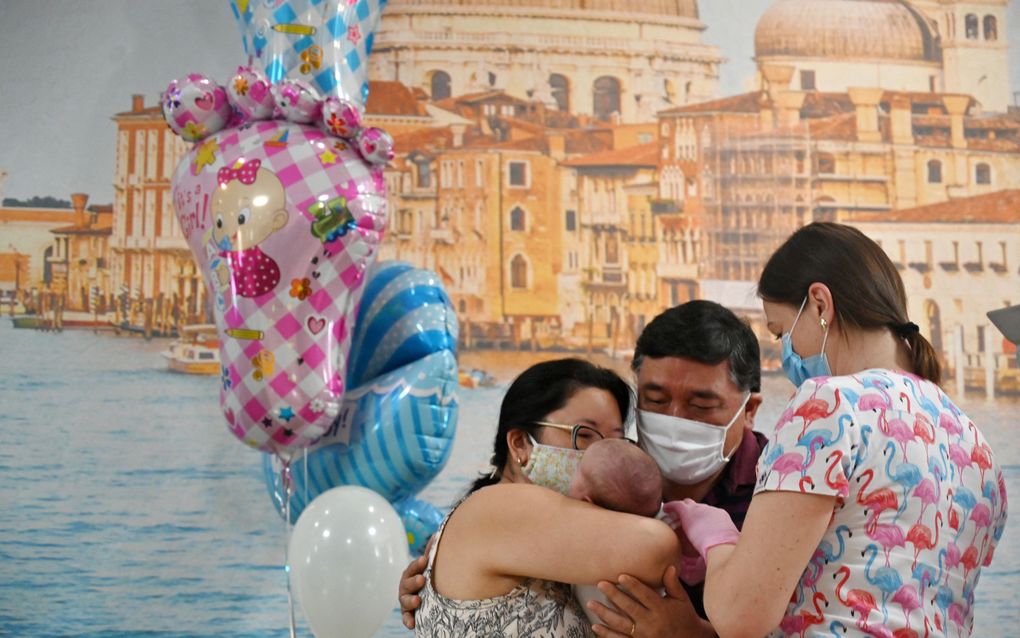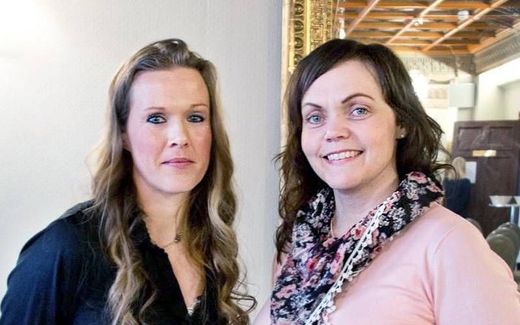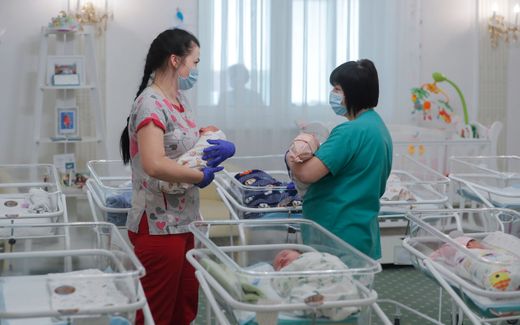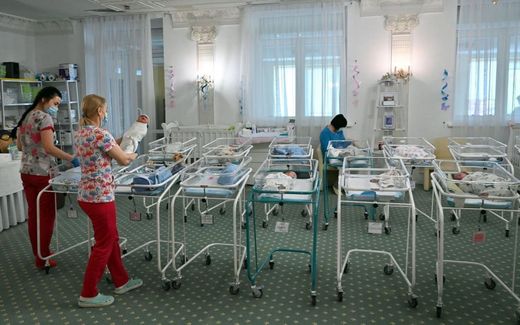European Court condemns Switzerland and Denmark for surrogacy

A couple reacts as they collect their son in the hotel Venice in the Ukrainian capital of Kiev on June 10, 2020. Photo AFP, Sergei Supinsky
European Union
The European Court of Human Rights (ECHR) has slammed Denmark and Switzerland for not recognising parenthood to couples who had a child via surrogacy.
In two recent court cases, the ECHR ruled that the two European States violated the rights of several children born to a surrogate mother.
In Denmark, a couple paid a Ukrainian surrogate mother to give birth to twins. While the fatherhood of the man, also the biological father of the twins, was recognised by Danish authorities, the birth certificate listing the non-biological mother as their mother was refused.
After several unsuccessful appeals in Denmark, the couple went to Strasbourg. There, the ECHR came to a different conclusion earlier this month.
According to the European judges, in recognising the non-biological mother as the mother, the Danish state had violated the children's rights, although there had been no violation of the intended mother's rights. According to the judges, the Danish authorities had failed to strike a balance between the interests of the children in this case and the societal interests in limiting the negative effects of commercial surrogacy.
Rights
In a similar case, European judges condemned Swiss authorities in late november. A same-sex couple had entered into a gestational surrogacy contract in the United States. However, Swiss authorities refused to recognise the parent-child relationship established by a US court between the intended father and the child. They only recognised the biological father as the father of the child. Here also, the ECHR ruled that the child's rights were violated.
Child trafficking
It is not the first time the ECHR ruled against national legislation. In 2014, the Court ruled against the French state in a similar case. Despite national laws not recognising surrogacy, countries were forced to acknowledge the relationships of their citizens.
According to Juristes pour l'enfance, a French organisation for children's rights, the Court rulings pose a problem of democratic legitimacy of this power granted by the European Court since its judges are not elected and have not received any mandate to enact self-proclaimed rules binding for all the States of the Council of Europe. "The European Court obliges States to ratify child trafficking on the pretext that it has been validated abroad."
Related Articles






